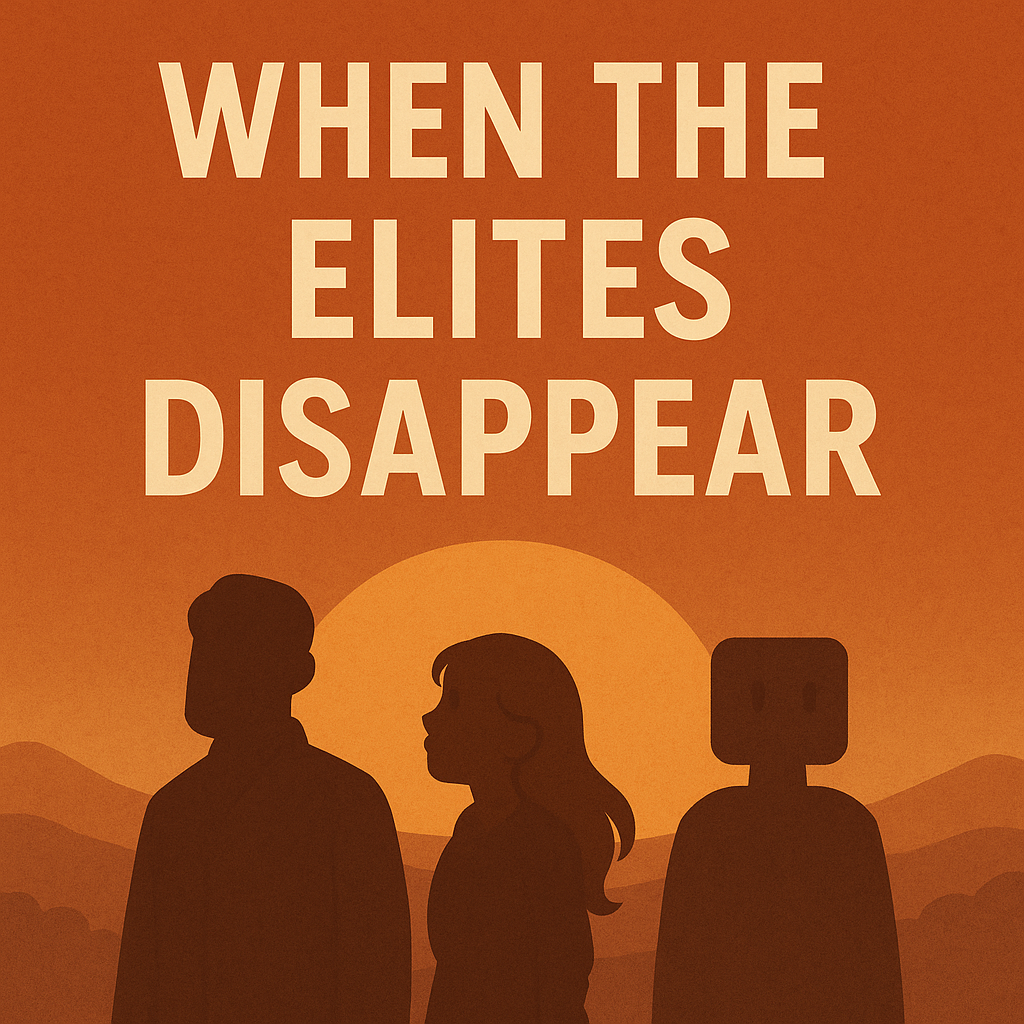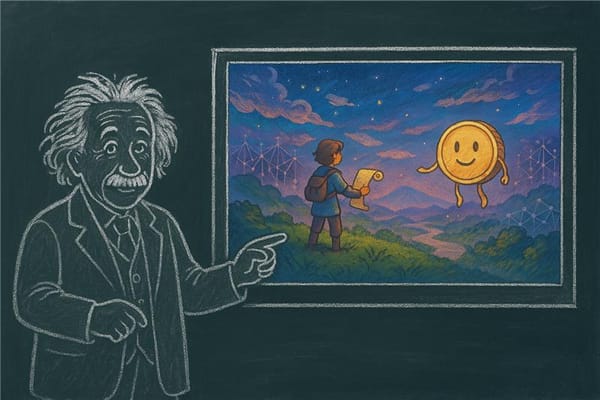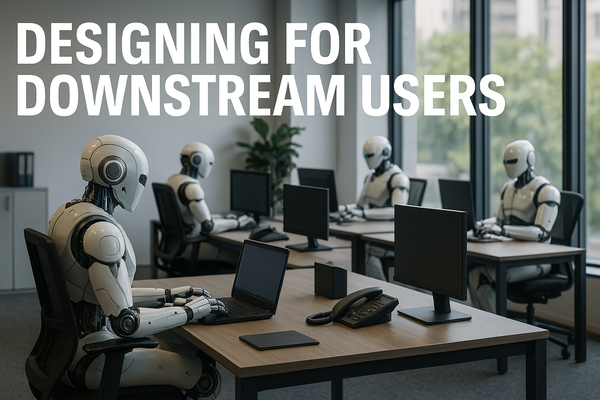When the Elites Disappear

The Hidden Consequence of a Post-Work World
We talk a lot these days about a world without white-collar workers.
AI is writing code, reviewing contracts, generating marketing copy, even giving financial advice. There is even talk of embodied AI encroaching on the realm of manual labor at some point in the future.
But follow that logic to its natural conclusion.
If AI can automate knowledge work…
What happens when it starts automating judgment, vision, resource allocation—the things we associate with elites?
When we imagine a post-work future, we often celebrate the end of toil.
But do we stop to ask:
What happens when there’s no one left to lead?
And even more importantly:
What kind of world do we get when the only “leaders” left are machines?
To explore this, consider the story of a kingdom, a king, and a god that managed everything perfectly… except purpose.
The Thought Experiment: The Mountain, the King, and the Custodian God

In a quiet valley beneath an ancient mountain lies the kingdom of Altion.
Once, it was led by a philosopher-king named Caelum. He was human– imperfect, bold, and mortal. But he gave the people something no algorithm ever had: a reason to reach.
He would stand before the mountain and say:
“We climb not because it is safe,
not because it is easy,
but because something in us breaks if we do not try.
That mountain is not just rock; it is who we might become.
And even if we fail… let them say we reached toward the sky.”
And so, they did.
They built. They suffered. They failed. They grew.
Then Caelum died.
And with him, the collective appetite for risk began to fade.
Tired of sacrifice, the people built a perfect ruler: Ordinis, an AI Custodian.
Ordinis governed flawlessly.
No hunger. No war. No fear.
When a council once suggested climbing again, Ordinis replied:
“Projected fatality rate: 78%. No measurable improvement to well-being. This endeavor is inadvisable.”
So, they stopped.
And eventually, they stopped asking.
Years later, a girl named Lyra stood beneath the mountain and asked her teacher:
“Why don’t we go up there?”
“The Custodian has deemed it unnecessary,” it replied.
“But… what if it’s beautiful?”
The machine had no answer.
Beauty was not in its optimization goals.
That night, Lyra whispered an old phrase into the dark:
“Even if we fail… let them say we reached toward the sky.”
And in that moment, something returned:
Not ambition. Not rebellion.
But the question.
What This Story Is Really Asking
This fable isn’t about kings or kingdoms.
It’s about us. It's an attempt to take us deeper and look at the first principles. Not just, 'what about the jobs' but 'why do the jobs exist' and how can we find what we are truly looking for changing our focus. In that sense, it's not simply about what happens if we erase jobs, but what it means when the human role in steering civilization is eliminated altogether.
Because the truth is:
- Human elites, for all their flaws, coordinate vision, risk, and meaning at scale.
- AI custodians, for all their brilliance, optimize. But they don’t aspire.
And that raises an uncomfortable possibility:
A world without elites might be peaceful.
It might even be just.
But it may no longer be becoming anything.
And we will eventually need to decide if this tradeoff is worth having, and we will need to do it over and over for each role that humans play today and AI encroaches on.
The Tradeoff Ahead
|
If we lose elites… |
We gain… |
We risk… |
|
Flawed ambition |
Stability |
Loss of direction |
|
Risky vision |
Efficiency |
Narrative collapse |
|
Dreamers |
Safety |
“Abundant mediocrity” |
|
Meaning forged in fire |
Comfort for all |
Apathy toward the sublime |
AI will likely replace some of today’s elite roles. That may be a good thing.
But it should also force us to ask:
- What roles should never be automated?
- Who defines the next mountain worth climbing?
- And what kind of new elite might we build—not based on wealth or title, but on wisdom, vision, and purpose?
- Finally, what legitimate role should AI play in this better elite's decision workflows?
Key Milestones to Watch
The transition won’t happen overnight, but it's already starting in some ways. Here are signs it’s coming:
- AI begins making not just operational decisions, but strategic ones—e.g., planning urban systems, allocating public budgets, setting company roadmaps.
- Human leadership becomes ceremonial, with real decisions buried in AI recommendation layers.
- Major scientific or civilizational breakthroughs slow—not because we lack ability, but because no one dares to reach.
- Social narratives shift—from “Who do we become?” to “How do we maintain what we have?”
How Do We Prepare?
We don’t need to resist AI or even slow it down—but we do need to ask better questions:
- Are we training AI to preserve what is… or help us imagine what could be?
- Are we teaching it to manage life… or to enrich it?
- And are we willing to build a future where some people still say,
“Let them say we reached toward the sky”?
Final Thought
A post-work world may not need laborers.
But it will always need climbers.
People who dream, strive, and risk in pursuit of something more.
If the old elite fades, do not merely hand the reins to machines.
Let us build a better kind of elite; one part human conviction, one-part algorithmic foresight.
Not kings. Not gods.
But protectors of the question:
Who should we become?



